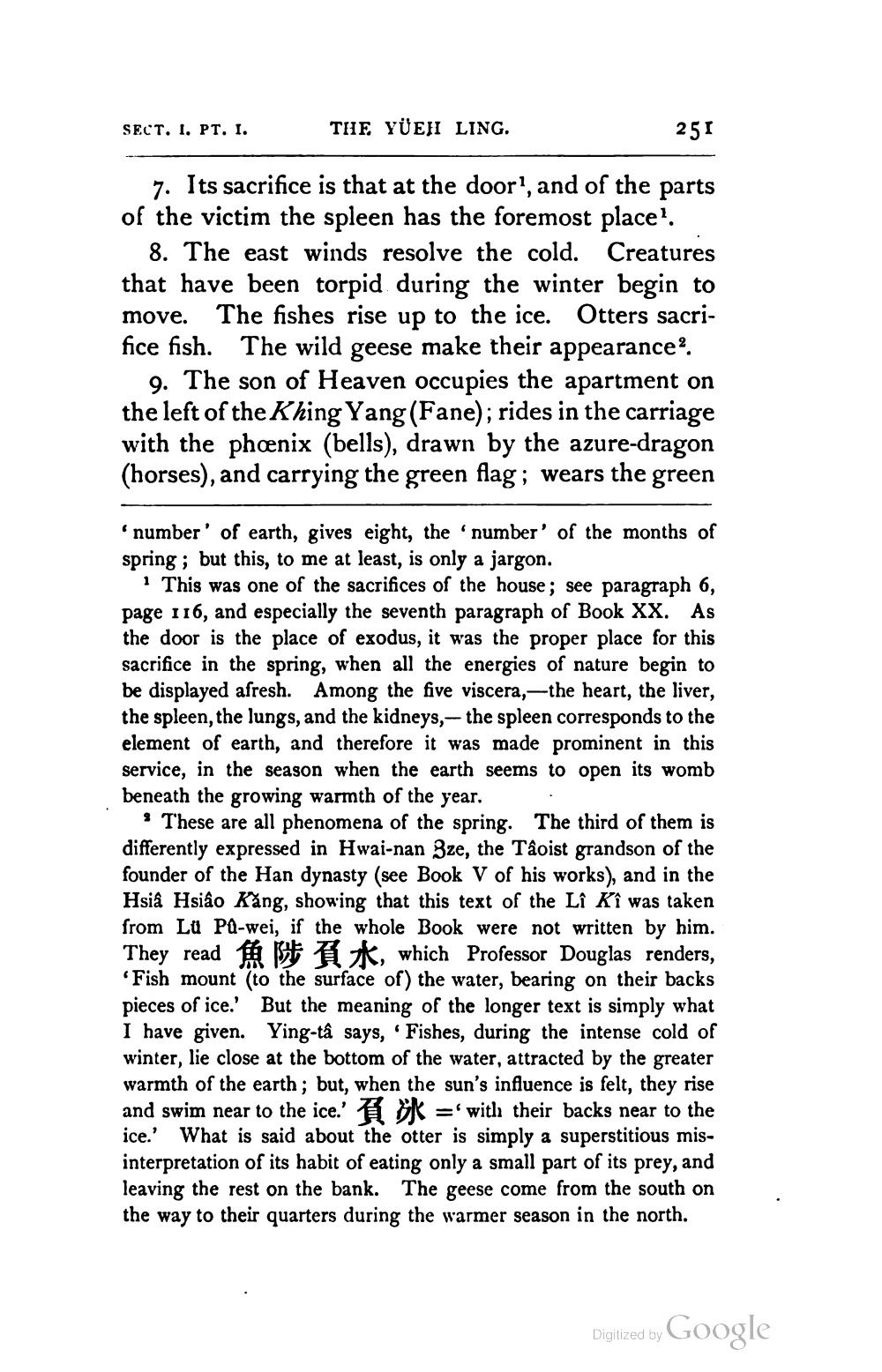________________
SECT. I. PT. I.
THE YÜEH LING.
251
7. Its sacrifice is that at the door!, and of the parts of the victim the spleen has the foremost place!
8. The east winds resolve the cold. Creatures that have been torpid during the winter begin to move. The fishes rise up to the ice. Otters sacrifice fish. The wild geese make their appearance.
9. The son of Heaven occupies the apartment on the left of the Khing Yang (Fane); rides in the carriage with the phenix (bells), drawn by the azure-dragon (horses), and carrying the green flag; wears the green
'number' of earth, gives eight, the number' of the months of spring; but this, to me at least, is only a jargon.
This was one of the sacrifices of the house; see paragraph 6, page 116, and especially the seventh paragraph of Book XX. As the door is the place of exodus, it was the proper place for this sacrifice in the spring, when all the energies of nature begin to be displayed afresh. Among the five viscera,--the heart, the liver, the spleen, the lungs, and the kidneys, - the spleen corresponds to the element of earth, and therefore it was made prominent in this service, in the season when the earth seems to open its womb beneath the growing warmth of the year.
. These are all phenomena of the spring. The third of them is differently expressed in Hwai-nan 3ze, the Taoist grandson of the founder of the Han dynasty (see Book V of his works), and in the Hsia Hsiao Kång, showing that this text of the Li Ki was taken from Lu Pa-wei, if the whole Book were not written by him. They read
, which Professor Douglas renders, Fish mount (to the surface of the water, bearing on their backs pieces of ice.' But the meaning of the longer text is simply what I have given. Ying-tâ says, 'Fishes, during the intense cold of winter, lie close at the bottom of the water, attracted by the greater warmth of the earth; but, when the sun's influence is felt, they rise and swim near to the ice.' K =' with their backs near to the ice.' What is said about the otter is simply a superstitious misinterpretation of its habit of eating only a small part of its prey, and leaving the rest on the bank. The geese come from the south on the way to their quarters during the warmer season in the north.
Digitized by Google




